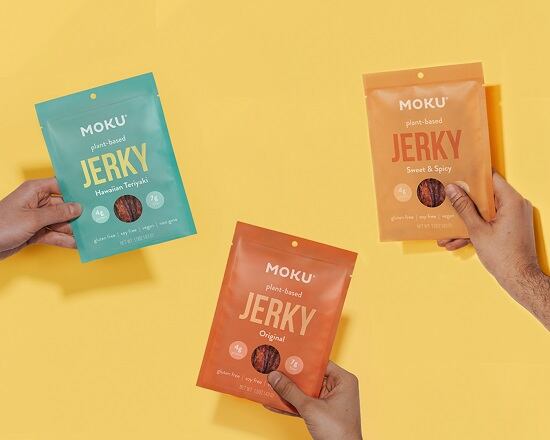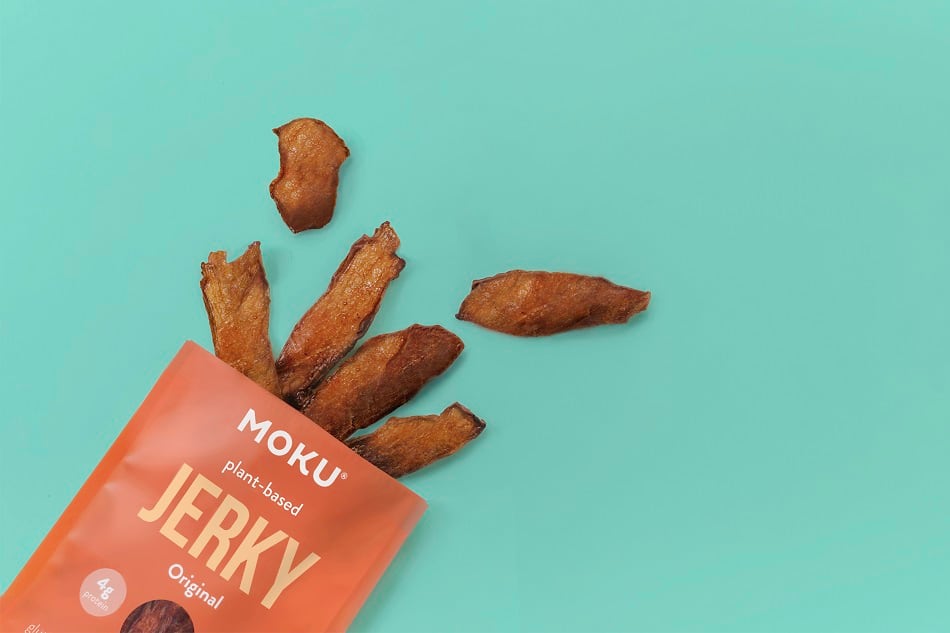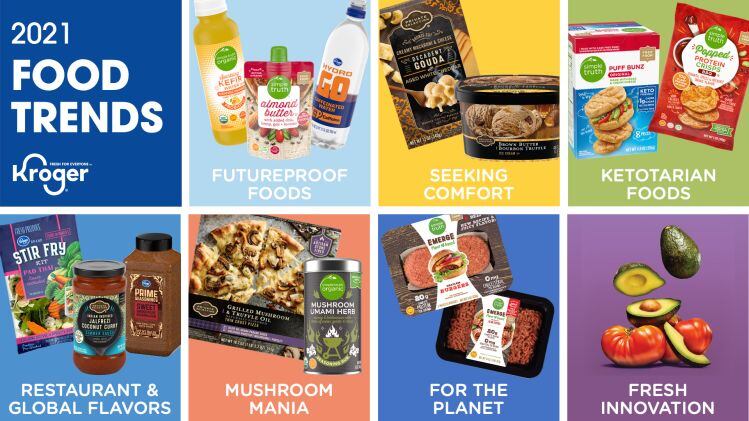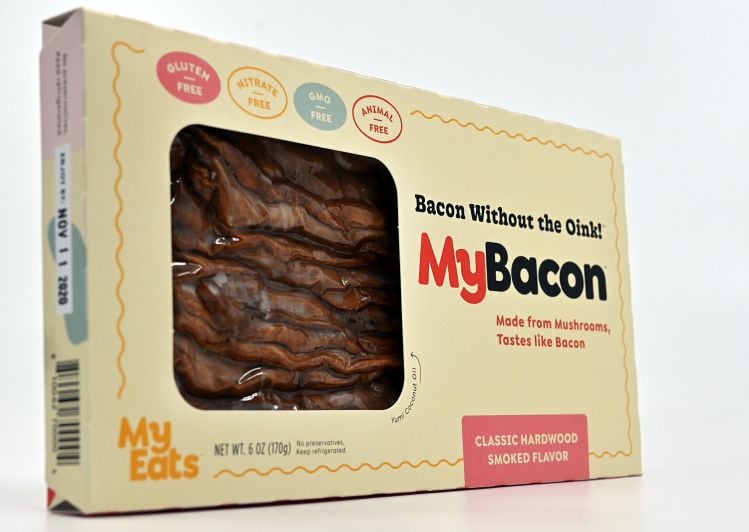Growing up in Hawaii, caring for the planet was instilled in Feldman from a young age.
"I think growing up on a small island with limited natural resources you're more adept to being responsible for your daily choices and how they impact both the island and the planet in general," Feldman told FoodNavigator-USA.
After moving to San Francisco for a job in the tech sector, Feldman started following a vegan diet but struggled to find a savory and satisfying snack to replace his love for beef jerky.
"I still missed the taste of meat," Feldman said, who noted that Moku -- despite its vegan credentials -- is a brand for consumers that like the taste of meat and also care about improving their diet with more plant-based options.
Feldman who had been chopping up, marinating, and drying Portobello mushrooms in his kitchen, believed he could make an even better-tasting product that could be packaged and sold

, but he needed expert help to perfect the formulation.
In what he describes as a fortuitous encounter, Feldman linked up with Thomas Bowman (former head of product development at Eat JUST, Inc. and current co-founder of plant-based dairy brand, Eclipse Foods).
"He was able to turn my kitchen recipe of Moku into a shelf-stable, plant-based jerky that really tasted like meat," said Feldman.
Using King Oyster mushrooms, which have a naturally meaty texture, and adding umami, savory notes from chickpea miso and coconut aminos, along with a hint of sweetness from maple syrup, Feldman felt he had a great-tasting product but still needed a partner to scale the business.
'We’re targeting a consumer that likes the taste of meat'
Using King Oyster mushrooms grown on logs in indoor farms, Moku's three flavors (Original, Hawaiin-Teriyaki, and Sweet & Spicy) taste like beef jerky, according to customer feedback from the thousands of bags its sold through its DTC site. The products will also be available for purchase on Amazon Prime later this month.
Each bag of Moku contains 4g of protein (although Feldman noted how the protein content would be increasing to 6g of protein in the coming months) and 7g of fiber.
Acknowledging that Moku products will never match the protein content of a Jack Link's product for instance, Feldman noted: "Where we beat them out is on fiber," which has become an increasingly important health trend in recent years.

Moku’s impact is also far-reaching for the environmentally-conscious as replacing a bag of jerky with a bag of Moku saves up to 12 square feet of land, 11 pounds of methane and 107 gallons of water, the brand claims.
'The hardest part about starting a plant-based food company is being able to scale it properly'
The typical path to market for a plant-based brand begins in a commercial kitchen facility, and from there (dependent on strong growth and sales velocities), it will transition to a larger-scale co-manufacturer, shared Feldman.
Along the way, said Feldman, brand founders have to assume a lot of risk while trying to grow their brand.
"It’s really easy to make a good tasting product from the kitchen, but the hardest part about starting a plant-based food company is being able to scale it properly," he said.
Which is why Feldman accepted the help and investment from Siddhi Capital, a CPG venture capital firm with more than 45 innovative brands in their portfolio including Magic Spoon, Recess, Sakara Life, and Little Spoon, who could set up a scalable back-end operation early on, which the brand could grow into over time.
Melissa Facchina, co-founder and general partner at Siddhi Capital, also wanted a co-founder role in Moku after being on the hunt for a plant-based jerky.
"I happen to have been on the hunt – both as an operating company and from an investment or partnership status – for a plant-based jerky for probably a year before I met Matt. I thought the market was ripe to be taken over and most of the products that were out were sub-par, in my opinion," Facchina told FoodNavigator-USA.
"I pitched Matt to not only be his operating partner but to come in a take a significant chunk of equity."
Facchina, who said she receives so many product samples that she has a closet in her home dedicated to housing most of them, immediately loved the taste of Moku and saw its potential to become a major plant-based snack brand.
According to Facchina -- who has had a front-row seat to the major wins and challenges of working with over 300 brands in her career -- said the white space in the plant-based foods category has been in convenient and delicious snacks.
"One of the things that I saw as so underappreciated [in plant-based foods] was the grab-and-go snack category," she said.
"I thought the product was perfect and that we could scale it, and that it had an opportunity for a format that could be a really big business."
Thriving DTC business
Feldman, who said sales have been strong considering the brand has only been on the market for a few months, is not immediately looking to go to retail distribution and instead his focus is on ramping up its direct-to-consumer channel with its upcoming Amazon Prime listing. However, he hasn't ruled out the possibility of eventually entering brick-and-mortar.
"We want make sure we have all our ducks in a row before going into retail, but I do think this would be a great addition to the jerky aisle. Our plan is for Q2 to start servicing some of the smaller wholesale accounts," said Feldman.




